Tell me a little about yourself
I am Malaysian born and bred. I came to the UK for the first time to study music at Oxford. I’m currently in my final year. I came here knowing that I wanted to be a conductor and that’s why I chose Oxford: I believed it would give me a good balance of academic rigour as well as the performance opportunities that you would need as a conductor. I think that as a conductor you should know a lot not just about history but also about how to analyse a piece, and more importantly, how you apply all of that in your rehearsals and make those rehearsals really effective so that you can pull off a great concert.
On the idea of using academia to complement conducting practise: what is your process when preparing to conduct a piece; what kind of work do you do beforehand and how do you think about approaching a piece?
I think that’s a very good question because I think each piece, each period of music, would require a slightly different process. If it’s a contemporary piece (maybe one that hasn’t even been performed before) that means you probably won’t have a lot of recordings and you don’t have a precedent of how it’s been performed, or what people will expect from it, so you are the one that is more or less deciding it. In that instance, it would definitely start from the score and then, if you possibly can, you work with the composer thinking about interpretation. It’s really about asking: what are the challenges of the music (when looking at the score)? Hopefully through your previous experience of conducting pieces you can decide where are the bits you want to look out for and which bits do you want to highlight.
For classic pieces like Beethoven, Mozart, or Brahms, it has been performed many times by many great conductors so it’s great for young conductors to know what has been done before, why people do the things they did, and then you can think about what approach you want to use.
If you were to approach a contemporary piece, what do you think the conductor’s role is in the premiering of a new piece, especially in the case of young composers who are trying to get their voice heard? How do you think the collaboration between conductor, ensemble, and composer should work when performing a piece for the first time?
I think, especially today, conductors and composers should definitely talk through the music; getting to know the conception of the piece, the motivation for its composition. I think understanding the conception is important because in the end, part of the conductor's role is to convey and actually execute what the piece really is. When working with a living composer, working side by side can really inform that and that really is a conductor’s best resource and I urge any young conductors working on a piece written by a living composer to do that whenever possible.
I think also as a conductor it shouldn’t be a one-sided feedback from composer to conductor; based on your own experience conducting, you can contribute your own expertise. Tempo for instance: many people can be very adamant about a particular tempo that they want set, but it is also about working with the resources you have. If you have a very fast, very technical passage then great! A professional orchestra will probably be able to deal with that, but when you are working with a semi-professional or amateur orchestra you may have to compromise. Of course no one wants to compromise when it comes to your artistic work and it’s understandable, but these are just some of the decisions you have to make. Acknowledging the restraints of the resources you are working with is an area where a conductor can help provide feedback to a composer for their consideration.
As far as you experience developing your skills as a conductor in the UK: what do you think have been the best opportunities and experiences you’ve received while you’ve been studying?
Coming to Oxford has definitely provided me with a lot of experience, particularly through the opportunity to be a conducting apprentice to Dr John Trail: a conducting and orchestration lecturer in Oxford, and also the music director for Oxfordshire county Youth Orchestra. In Summer 2018 I had the opportunity to work with him and his orchestra as a conducting apprentice and went on tour with them to Germany. I was able to work with one of the pieces of repertoire with them, a piece by Kabalevsky. Being able to receive one-on-one tuition and lots of podium time, and being able to observe many of his techniques working with young musicians really helped teach me how to begin the whole rehearsal process and become a more confident conductor in general. To be able to work on one piece over a period of two-three weeks; just knowing it really in-depth, knowing the piece inside out, really helped me as a beginning conductor.
Speaking more broadly then, what do you think are some of the most pressing issues for you artists at the minute and what do you think our role is as young artists: what should we be trying to achieve?
As young artists in general I think it’s really interesting because we are often in the position of being the recipients of support: both opportunities and sometimes financial support. I think it’s crucial for young artists to think about how they can give to society, and engage with social issues, even as we receive a lot of support from other people. Maybe not everyone would think that it is our responsibility to engage with social issues in our artwork or through what we engage with, but I would say that for me, I hope that through my work I can not just produce music that is beautiful, but also help produce a social impact through who and what I engage with, because that is what I care about. For young artists in general, whether it is to make a social impact or an artistic one, always think about how else I can give whilst I receive. I think that’s important.
Would you like to talk a little about your academic work? I know you’ve been doing some work on the relationship between music and politics. How do you think your engagement with academia informs your musical identity?
I’m currently doing a subject called Music in the Community and that has definitely exposed me to a lot of scholarship on how to create works which can serve and form communities. It also makes you want to examine what kind of impact you want to create. It also makes sure that your evidence isn’t just the missions you put up: I’ve seen how music workshops have helped autistic children and elderly people with dementia.
In the lens of music and politics I am currently working on a dissertation which is analysing music videos produced during the 2018 Malaysian general election, looking at how those music videos are being framed and how they engage with social and political issues, whether they can be considered propaganda, protest, resistance, or even a combination of all of them among the Malaysian citizens. That really got me thinking about if in the future, with my own ensemble, whether I should be thinking about actively promoting diversity for instance; is it enough to include members from every ethnicity in Malaysia for instance? I have to think about what kind of repertoire we’re performing. If I play classical western repertoire in this ensemble… it’s ok, but I just need to ask myself: why? I think my programme has taught me that diversity isn’t just about recruiting people from different places, different ages, different countries, and get them together and sing for a concert for them to go home, perhaps having just had a very profound moment but without necessarily understanding each other. I think this is when good musicological approached and knowledge can inform you about how to tackle those issues.
What do you think the future holds for you? What would you like to do going forward from your current university course?
It’s exciting! I’ve received a conditional offer to study music and conducting at the Royal Welsh College of Music and Drama in Cardiff for postgraduate study. I’m really grateful for that opportunity and am really excited to embark on it. After that I can imagine myself trying out different positions, perhaps applying for assistant conductorships in different professional orchestras in western europe including the UK. I’m definitely open to applying to the positions in Asia as well. But I think in the long term I see myself teaching, teaching things like musical analysis and music history, but more importantly I see myself teaching and guiding orchestras and ensembles at universities and I hope to create a university curriculum where students would engage with other social groups in the society and other vulnerable groups such as refugees. We have a lot of refugees in Malaysia - Myanmar refugees - who I have worked with previously through a choir. I think that would be a way for young growing artists to learn and acquire the skills they need to become a professional musician and at the same time during that journey engage with the social issues surrounding them.
What would be your advice to the readers of Voice? Whether they are looking to further their education through some route or wanting to move into and engage with the professional arts sphere.
I’m not sure I’m in a position to give that advice; I am after all embarking on that journey myself! But from what I have learnt, I would say maybe three things.
Work hard and smart. I can’t stress that enough. There are many great talents about, what differentiates some from others is a matter of discipline and consistency, but also not giving up and really working hard on what you believe in and what you do. But also being very smart with your time. University might be three years but time flies, you need to think about what you want to do and what you want to engage with. Specifically for conductors, you might not be able to conduct your ideal orchestra or your ideal repertoire to begin with but don’t not do it because of that, any orchestral experience you can get will be valuable and as a young conductor you will need as much experience as you can get because there isn’t much available.
Secondly, do not be afraid to doubt yourself. I think there is a very strong narrative about young artists: once you’ve chosen to follow an artistic field there is no way out or there is no way to branch out and the only way forward if you choose music is performance, or composition, or musicology. This isn’t the case. One option for musicians these days is music management. These days, yes, musicians should be the managers of their own lives, but once your career takes off you might need other music agencies to step in and help you. If you love music but you also really like managing people - as a conductor I like managing people which is why I do what I do - then there are also other ways to manage people, like helping and assisting artists already in the field. Be open to options, and don’t be afraid to doubt your options and to question where you stand. There’s probably a good reason you do, and to tap into that and respond to that will really help your growth as a professional. In later years you may find a completely different answer to what you had initially envisaged and that’s totally fine.
Thirdly, have fun with your life, so you can have fun with your music. It doesn’t need to be the other way around where you need music to have life - although I definitely can understand that - but I definitely feel you need to have life to have music. While we may feel like what we do demands and deserves as much time and as much space as it needs, it’s important not to forget the reason why we do art in the first place is for the people around us, so set aside some time for the people you love, and for issues outside of art, because they are constantly in dialogue.
This interview was lightly edited for brevity and clarity.

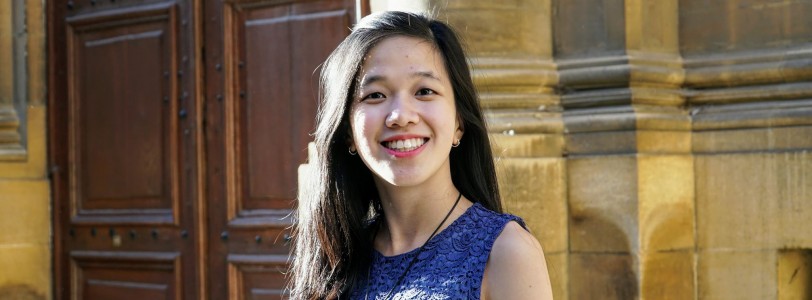
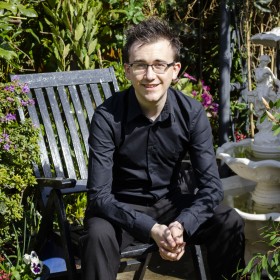
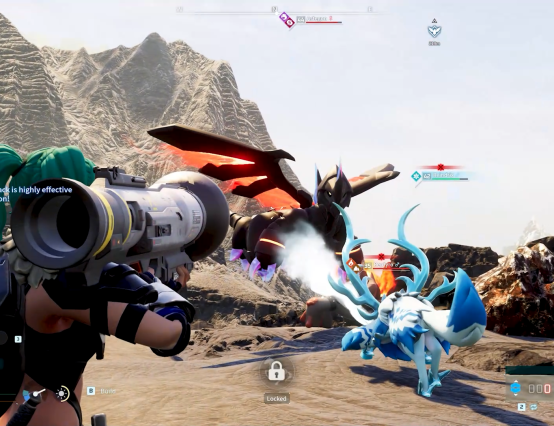

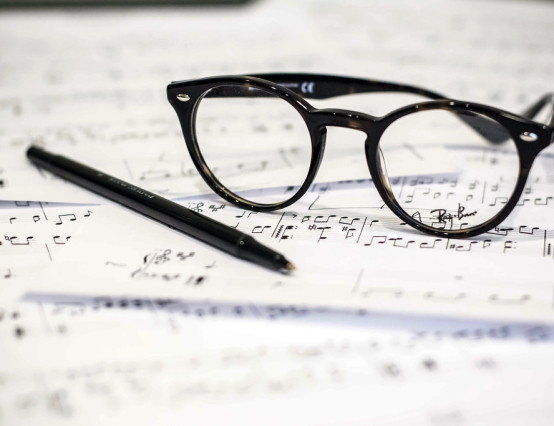



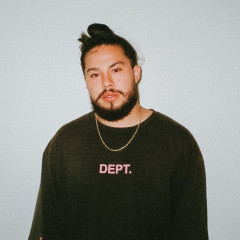
I enjoyed this article and ( as a non-musician!) was particularly interested in the role of music for dementia sufferers and autism. I hope Yi Yun Soo enjoys her time in Cardiff, my home town, as much as I enjoy my trips to Malaysia!